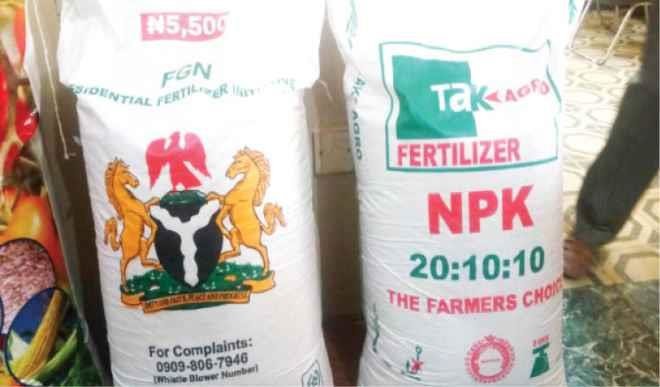Ban on importation of NPK fertiliser will save Nigeria $500m annually –FEPSAN
The Fertiliser Producers and Suppliers Association of Nigeria (FEPSAN) has disclosed that the ban on the importation of all blends of the Nitrogen Phosphorous and Potassium (NPK) fertilizers will save Nigeria $500 million annually. A statement made available to newsmen in Abuja quoted FEPSAN President, Mr Thomas Etuh, as saying the NPK fertiliser importation ban […]

The Fertiliser Producers and Suppliers Association of Nigeria (FEPSAN) has disclosed that the ban on the importation of all blends of the Nitrogen Phosphorous and Potassium (NPK) fertilizers will save Nigeria $500 million annually.
A statement made available to newsmen in Abuja quoted FEPSAN President, Mr Thomas Etuh, as saying the NPK fertiliser importation ban would also create more jobs for Nigerians in the agro-allied industry.
While applauding the Federal Government’s total ban on the product, he said the move would stop the importation of poor quality NPK fertiliser blends into the country.
Etuh also said the ban would boost local capacity and protect the soil from toxic fertilisers imported into the country by unscrupulous business people.
He said government had done the right thing because no economy that desired to grow would encourage the importation of what it can produce and at affordable prices.
He said: “The only way the Federal Government can demonstrate its commitment to improve agricultural production and boost local capacity is by taking such strong steps.
“The ban will position the entire agricultural value chain and allied industries to support the Nigerian economy while widening the already open opportunities for foreign exchange earnings.”
He stressed that NPK fertiliser blended in the country were produced with specific soil composition in mind, which was not the case in most imported products which destroy the soil and cause stunted growth to crops.
“Fertiliser blending plants in Nigeria are growing and have demonstrated capacity to produce exactly what Nigerian farmers need to enrich Nigerian soil for improved food production.
“We have demonstrated this and have attestations from farmers to support this claim and when I say we have the capacity, I mean we have such capacity in quantitative and qualitative terms,” he said.
